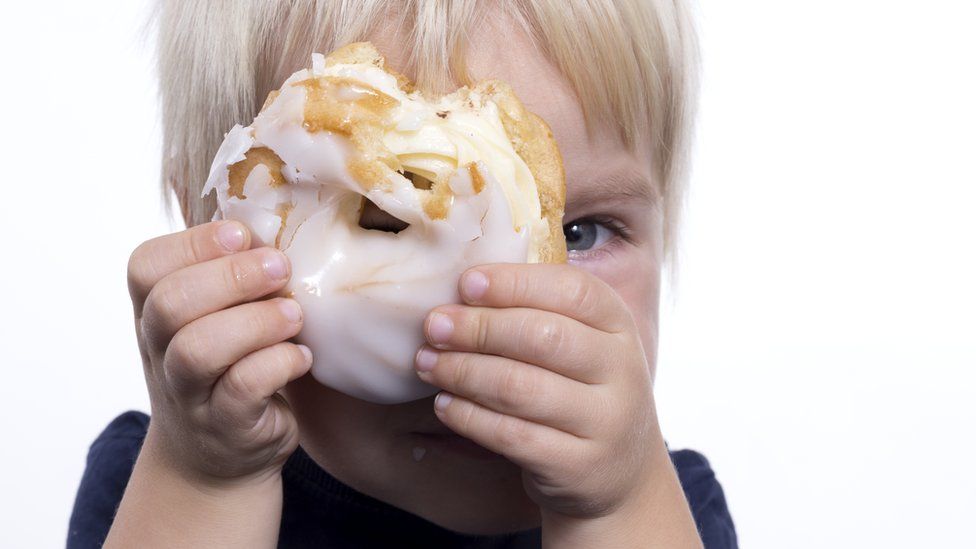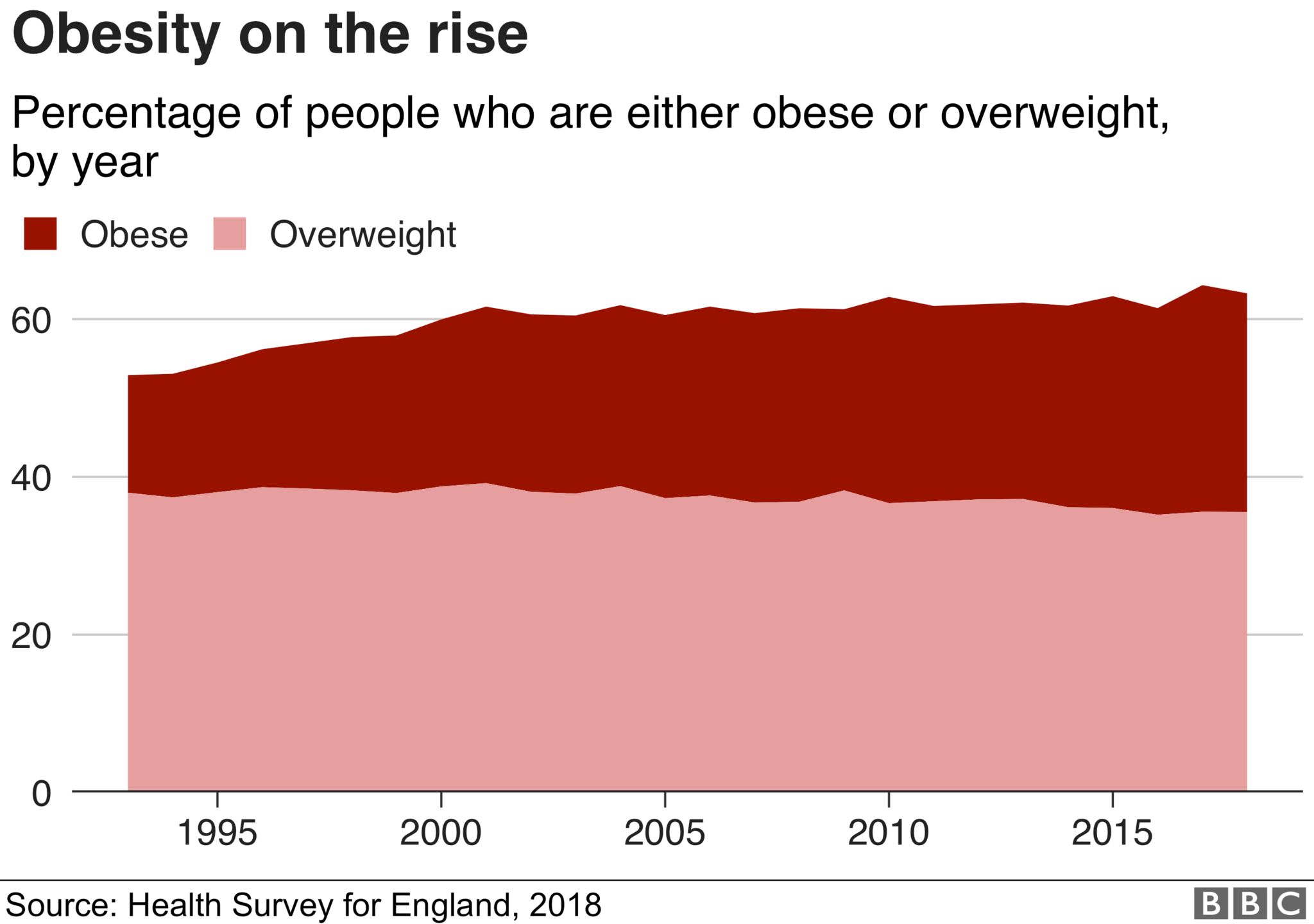Ministers say children must cut down on products high in fat, salt and sugar, amid rising obesity.

image copyrightGetty Images
The government is to impose a UK-wide pre-9pm ban on TV adverts for food high in sugar, salt and fat.
There will also be new rules on online promotion, but firms selling junk food will still be able to run websites.
A total ban on online adverts was proposed last year, but this has been scaled back after consultation.
The TV restrictions come after Boris Johnson made tackling obesity, which affects more than a quarter of UK adults, a priority for the government.
Food companies have said outlawing any form of junk food advertising – worth hundreds of millions of pounds a year – would be disproportionate.
From the end of next year, TV adverts for junk food – also including breakfast cereals, yoghurts, ready meals, chicken nuggets and battered fish – will be allowed only between 9pm and 5.30am.
The rules will apply to live and on-demand programmes and will not affect companies with fewer than 250 employees.
The Department of Health said the restrictions would not affect some foods that are high in sugar, salt or fat – such as honey, olive oil, avocados and Marmite – as these were not seen as contributing significantly to childhood obesity.
Public health minister Jo Churchill said: “We are committed to improving the health of our children and tackling obesity.
“The content youngsters see can have an impact on the choices they make and habits they form. With children spending more time online, it is vital we act to protect them from unhealthy advertising.”
The UK population’s weight has risen since the early 1990s, with more than 60% of the adult population now overweight or obese, according to NHS Digital.
Problems often begin in childhood and those from the most disadvantaged backgrounds are most likely to suffer.
The government says it is keen to prevent young people consuming too many unhealthy products and since 2018 manufacturers have had to pay extra tax on high-sugar drinks.

Back in 2006, Mr Johnson defended mothers who – in spite of efforts by TV chef Jamie Oliver to improve school meals – were reportedly pushing fatty foods through school railings to their children,
“I say let people eat what they like,” he said. “Why shouldn’t they push pies through the railings?”
But his views have changed, particularly since he was hospitalised with Covid-19 last year.
Mr Johnson said obesity was one of the “real co-morbidity factors” associated with the disease, adding: “Losing weight, frankly, is one of the ways you can reduce your own risk from coronavirus.”
But the Institute of Practitioners in Advertising – which represents the large ad agencies – has said the government’s own impact assessment shows a watershed on high-fat, sugar and salt food and drinks would only remove around 1.7 calories per day from a child’s diet – the equivalent of half a Smartie.
Charmaine Griffiths, chief executive of the British Heart Foundation, said: “These plans are a bold and very positive step forward in protecting children from being inundated with junk food advertising.
“Introducing a 9pm TV watershed for junk food adverts and also further restrictions for online advertising is one important part in building a more healthy environment where the healthy option is the easy option.”
The NHS says most adults with a body mass index (BMI) of 25 to 29.9 are overweight, while those with a BMI of 30 to 39.9 are classed as obese.